Choline is a very important compound for healthy and normal brain function. When it comes to choline in a nootropic based supplement or pre-workout, there are multiple forms and options to choose from.
The three most popular types of choline are as follows:
- Choline bitartrate
- Alpha-GPC
- Citicoline
Choline Bitartrate
Choline bitartrate is one of the most common types of choline and one of the cheapest. By weight, this ingredient contains about 41% choline, which is very dense when compared to other choline sources on the market.
When it comes to cognitive enhancement, choline bitartrate isn’t great at crossing the blood-brain barrier (barrier between the brains blood vessels) and has been shown in many studies not to really work in humans at all.
Alpha-GPC
Alpha-GPC is similar to choline bitartrate when it comes to density, but it has one major advantage over choline bitartrate and other choline sources.
The major advantage is that it has the ability to cross the blood-brain barrier effectively.
Alpha GPC is about 40%-50% choline by weight, allowing for a potential 40 mg choline per 100 mg alpha-GPC. Alpha-GPC is a naturally occurring compound, found as a natural nutrient in red meats.
The good thing with alpha-GPC is that it is backed by very promising research, for example:
Study in short 1 - young individuals volunteered with scopolamine-induced memory impairment, alpha-GPC when supplemented eased the impairment on attention and memory, as compared to placebo.
Study source: https://www.ncbi.nlm.nih.gov/pubmed/2071257
Study in short 2 - 13 clinical trials where done, which included a total of over 4,000 human subjects, found significant improvements in memory and attention impaired by cognitive decline with alpha-GPC supplementation.
Study source: http://www.sciencedirect.com/science/article/pii/S0047637401003128
Citicoline
Citicoline is more than just a choline source. It also doubles as a cytidine supplier, delivering the precursor to the nootropic uridine.
Citicoline is one of my personal favourites and is a powerhouse for two reasons:
- By weight, it carries 18% choline allowing room for cytidine.
- Elevated uridine production means that neural connectivity is strengthened.
Although citicoline holds less choline per serving than alpha-GPC, the combination of choline and cytidine is a very effective and powerful tool for cognitive enhancement that surpasses the normal benefits of choline, namely within the area of brain energy and repair.
Citicoline’s varied biomechanisms allow the nootropic to be not only an cognitive enhancer but a long-term brain repair compound, granting it the status as a universal nootropic based compound.
Other Nootropics
Bacopa Monnieri
Bacopa monnieri is an ancient herb used in pre-workouts and medicine to enhance brain function.
Many studies in relation to the compound have found that it can speed up information processing in your brain, reduce reaction times and improve memory.
In addition to this, it also stops the breakdown of an enzyme that breaks down acetylcholine within the brain.
Rhodiola Rosea
Rhodiola rosea is an adaptogen based herb (just like the famous ashwaghanda) that helps your body handle stress much more effectively.
Many studies have shown that rhodiola rosea can improve mood and decrease feelings of stress in both anxious and highly stressed individuals.
So Which Choline Source is Best?
When it comes to choline sources and nootropics in general, it is very subjective as one individual might prefer something different to someone else. However, lets go off the facts and provide a quick summary of the choline sources covered in this blog:
- Choline Bitartrate – 41% choline density, cheap and pretty much ineffective in humans.
- Alpha-GPC – 40%-50% choline density; able to cross the blood-brain barrier quite effectively in humans.
- Citicoline – 18% choline plus cytidine, pretty much a two-in-one nootropic and able to cross the blood-brain barrier effectively.

